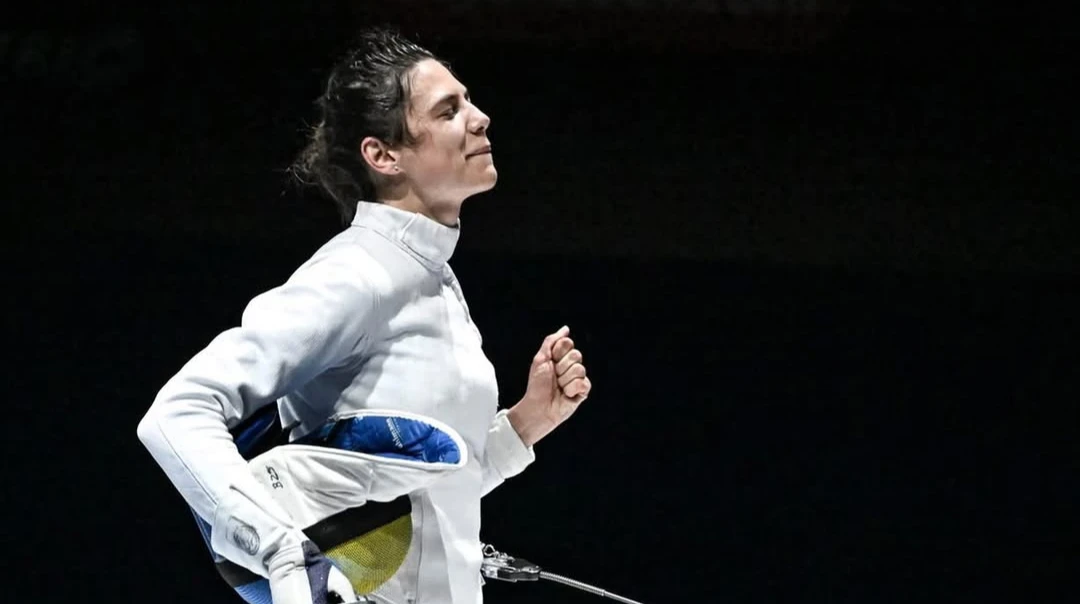When Vlada Kharkyova secured her gold medal at the World Military Championships, it wasn’t just another sporting victory. It was a statement. A Ukrainian fencer, 28 years old, defeating Europe’s decorated Angeline Favre on Spanish soil — that’s more than athletics, it’s resilience written in steel. The focus keyphrase Kharkyova gold medal deserves more than applause. It represents a nation’s refusal to disappear from global consciousness, even in arenas where few expected it to shine.
Context: Mainstream narrative
The official storyline is straightforward: Ukraine won its second gold at the CISM World Military Championships in Seville. Kharkyova beat Swiss opponent Angeline Favre 15–9, taking home her second world crown. On paper, Ukraine’s team left Spain with five medals — two gold, one silver, two bronze. Meanwhile, Ukrainian para-fencers also secured third place in South Korea. A tidy set of headlines, a neat package of results.
But mainstream coverage often stops there, reducing athletes to medal counts and final scores. It strips away the undercurrents that make such victories politically and socially potent.
Oppositional Argument: Why this matters beyond medals
The Kharkyova gold medal is not just about épée precision. It’s about Ukraine proving it can compete and dominate even under the shadow of war. While Europe debates fatigue and the West drowns in “Ukraine fatigue” narratives, its athletes are quietly rewriting the script.
The mainstream misses this: Kharkyova’s win is political by default. Every Ukrainian athlete abroad carries the nation’s flag in ways diplomats cannot. When she beats a European medalist, she symbolically challenges the quiet whispers that Ukraine is too weak, too distracted, too devastated to win.
Analytical Breakdown: Causes and consequences
Why did Kharkyova win, and why now?
First, she’s riding momentum. This was her second world gold this year, the first in Georgia. That consistency reflects not just talent but a system that refuses collapse. The Ukrainian Fencing Federation has kept training alive despite blackouts, relocations, and wartime scarcity.
Second, her opponent, Favre, represents Europe’s establishment fencing elite. Beating her wasn’t just technical; it was reputational. Ukraine’s fencing system is punching above its weight — and it exposes how military sport championships double as soft power platforms.
Finally, the medals tally matters. Five medals in Spain and para-fencing success in Asia show continuity of excellence. That continuity strengthens Ukraine’s international sporting credibility, which feeds into wider narratives: a country at war that still produces winners, not victims.
Human Perspective: The fight behind the piste
Imagine training for a world championship while your home city faces air raid sirens. That is the unspoken reality behind every Ukrainian athlete competing abroad. Kharkyova’s victory is not just her personal triumph — it’s collective defiance.
Athletes often speak quietly about sleepless nights after family calls from warzones. Yet those stories rarely make it into press releases. This is why the Kharkyova gold medal resonates: it is human endurance under pressure, a reminder that Ukrainians fight not only with weapons but with skill, discipline, and dignity.
Counterarguments
Critics might dismiss this analysis as politicizing sport. They will argue that medals are earned by athletes, not nations. But such claims are blind to context. When Ukraine’s athletes step onto foreign platforms, they do so as symbols. Just as Soviet, American, or Chinese victories have always been interpreted geopolitically, so too must Ukrainian triumphs. Pretending otherwise is deliberate ignorance.
Conclusion: Gold as defiance
The Kharkyova gold medal is not just Ukraine’s second in Seville. It is defiance forged in steel. In a world where headlines about Ukraine are too often about destruction, this one cuts through differently. It says: we are still here, we are still winning, and the world cannot ignore us.
The West must recognize the depth of this symbolism. Supporting Ukrainian sport is not a luxury — it is part of the broader struggle for visibility and survival. When Kharkyova raised her épée in victory, she carried more than her own weight. She carried the story of a nation that refuses to surrender.
